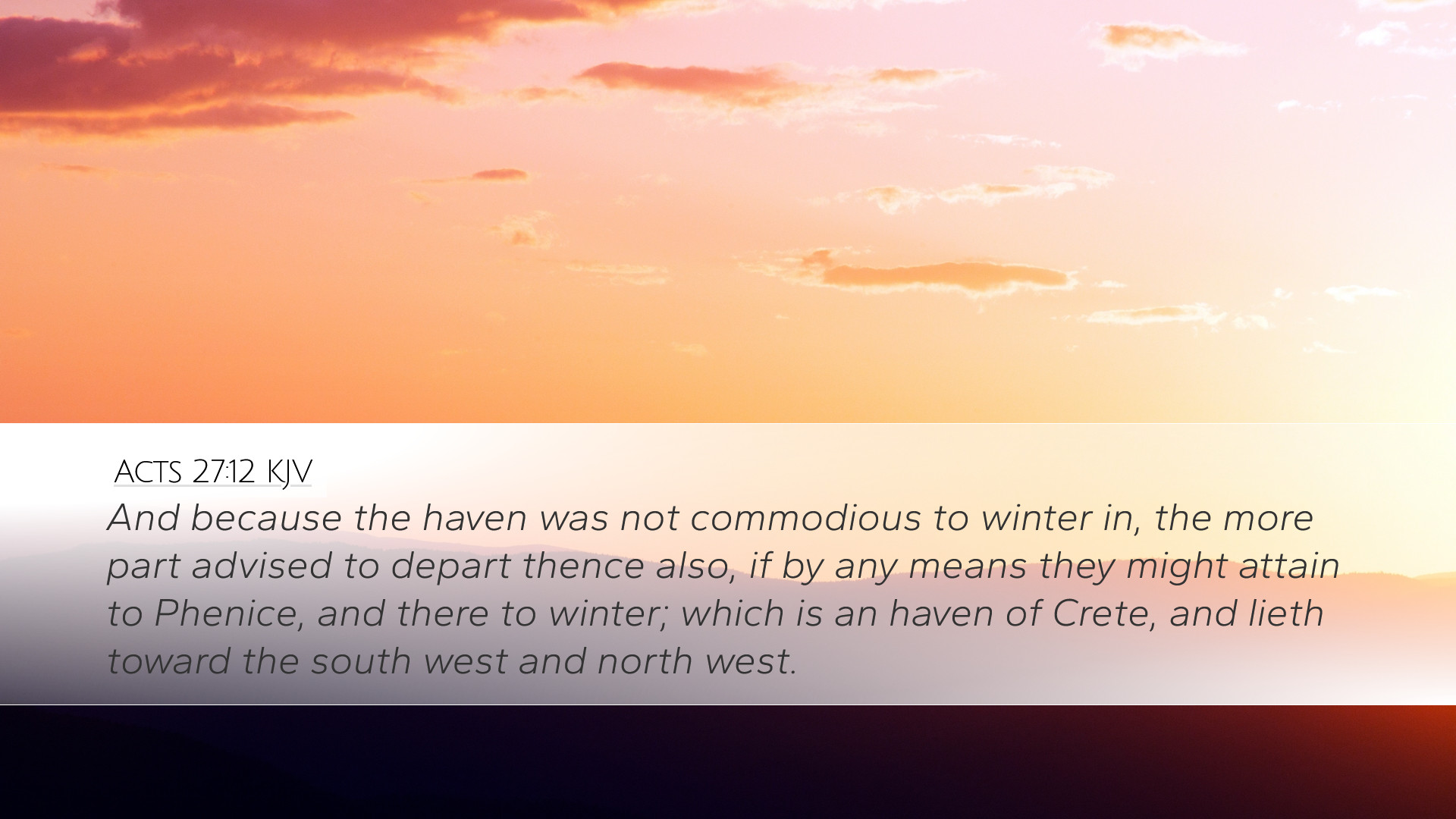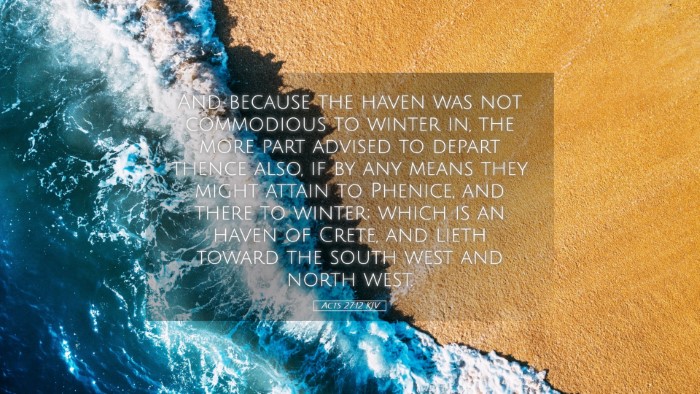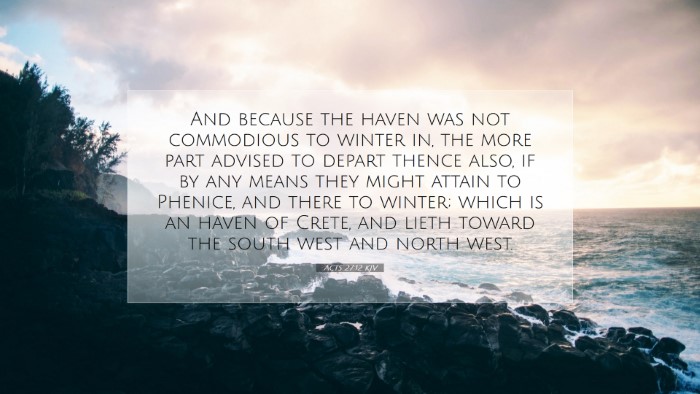Commentary on Acts 27:12
Acts 27:12 states: “And because the haven was not commodious to winter in, the more part advised to depart thence also, if by any means they might attain to Phenice, and there to winter; which is an haven of Crete, and lieth toward the south-west and north-west.” This verse situates itself within the broader narrative of Paul's journey to Rome, emphasizing the practicalities and difficulties encountered by those aboard the ship. Below is a synthesis of insights from prominent public domain commentaries.
Contextual Overview
Acts 27 details Paul's voyage to Rome, where he is ultimately to stand trial before Caesar. In this chapter, the historical and geographical significance of various locations, as well as the challenges of seafaring in the ancient world, come into sharp focus.
Geographical Significance
- Haven of Fair Havens: The initial harbor, Fair Havens, is deemed inadequate for wintering due to its exposed location and lack of sufficient resources.
- Phoenicia: The pursuit of further ports like Phenice highlights the sailors' desire for safety and better conditions during winter storms.
- Seasonal Navigation: The verse reflects the practices of ancient sailors who would seek safe havens during inclement weather, which is critical for understanding the travel patterns of the time.
Insights from Commentary
Matthew Henry
Matthew Henry emphasizes the importance of navigation and decision-making in the face of perilous conditions. He notes:
- Human Pragmatism: The decision to leave Fair Havens was largely human-driven, reflecting the common tendency to prioritize immediate safety and comfort over divine guidance.
- Danger of Majority Opinion: Henry warns about the dangers of following the majority, especially when it comes to matters of faith and divine leading.
- The Sovereignty of God: Even in their flawed reasoning, God’s providence governs the outcome of their decisions; ultimately, the voyage becomes a crucial part of God’s plan for Paul.
Albert Barnes
Albert Barnes provides practical reflections on this passage, addressing both the physical needs of the travelers and spiritual implications:
- Miscalculation: Barnes points out that the assessment of Fair Havens as unsuitable contrasts with the spiritual realities of trusting in God’s plan.
- Human vs. Divine Wisdom: The gathering of 'the more part' to dictate the next course of action reveals the limitations of human wisdom compared to divine foresight.
- Preparedness for Trials: The need to winter safely is an allegory for the necessity of preparation in faith; spiritual leaders should prepare their congregations for life's storms.
Adam Clarke
Adam Clarke focuses on the cultural and navigational aspects of the passage, providing deeper understanding:
- Vulnerability of Sailors: Clarke notes the sailors’ vulnerability to natural elements and how it necessitated a constant search for better anchorage.
- Strategic Decisions: The choice to seek a new harbor is informed by historical nautical practices and the urgency to find stability amidst turmoil.
- Spiritual Lessons: Clarke emphasizes that spiritual journeys often encounter hurdles that compel individuals to make difficult choices; reliance on God is paramount during these times.
Lessons for Modern Believers
The struggles of the early church, as evidenced in Paul's journey, resonate with contemporary believers. Important themes emerge from Acts 27:12:
- The Need for Wise Counsel: Believers should value godly counsel over majority opinion when making significant life decisions.
- Trusting God's Plan: As seen in Paul's eventual destination, understanding that God may redirect our paths is crucial for spiritual growth.
- Preparation in Adversity: Like the sailors who sought a safe haven, Christians must cultivate preparation and readiness during turbulent times.
Conclusion
Acts 27:12 is a rich text that highlights the intersection of human wisdom, divine providence, and the trials of navigation—both literal and metaphorical. As pastors, students, and scholars reflect on this verse, they are reminded of the importance of trusting God's overarching purpose, even in seemingly difficult or misguided circumstances. By embracing the lessons derived from the commentaries of Henry, Barnes, and Clarke, believers can cultivate a deeper reliance on God in their own journeys.


